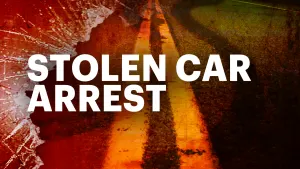More Stories
The government's top infectious diseases expert said Sunday “it is entirely conceivable, maybe likely” that Americans will need a booster dose of the COVID-19 vaccine in the coming months, but it is too soon for the government to recommend another shot.
Dr. Anthony Fauci, who is President Joe Biden's chief medical adviser, said the Centers for Disease Control and Prevention and the Food and Drug Administration did the right thing last week by pushing back against drugmaker Pfizer’s assertion about a booster within 12 months. Hours after Pfizer's statement Thursday that it would seek authorization for a third dose, the two agencies said they did not view the booster shots as necessary “at this time.”
Fauci said clinical studies and laboratory data have yet to fully bear out the need for a booster to the current two-shot Pfizer and Moderna vaccines or the one-shot Johnson & Johnson regimen.
SEARCH FOR A CURE: Statistics and State Resources
“Right now, given the data and the information we have, we do not need to give people a third shot,” he said. “That doesn’t mean we stop there. ... There are studies being done now ongoing as we speak about looking at the feasibility about if and when we should be boosting people.”
He said it was quite possible in the coming months “as data evolves” that the government may urge a booster based on such factors as age and underlying medical conditions. "Certainly it is entirely conceivable, maybe likely at some time, we will need a boost,'' Fauci said.
Currently only about 48% of the U.S. population is fully vaccinated. Some parts of the country have far lower immunization rates, and in those places the delta variant is surging. Last week, Dr. Rochelle Walensky, the CDC director, said that’s leading to “two truths” - highly immunized swaths of America are getting back to normal while hospitalizations are rising in other places.
On Sunday, Fauci said it was inexplicable that some Americans are so resistant to getting a vaccine when scientific data show how effective it is in staving off COVID-19 infections and hospitalizations, and he was dismayed by efforts to block making vaccinations more accessible, such as Biden's suggestion of door-to-door outreach.
Gov. Asa Hutchinson, R-Ark., agreed Sunday that there is a vaccine resistance in Southern and rural states like his because “you have that more conservative approach, skepticism about government."
Describing his efforts to boost vaccinations in his state, which is seeing rising infections, Hutchinson said “no one wants an agent knocking on a door," but "we do want those that do not have access otherwise to make sure they know about it.”
The grassroots component of the federal vaccination campaign has been in operation since April, when supplies of shots began outpacing demand. It was outlined and funded by Congress in the $1.9 trillion COVID-19 relief bill passed in March and overwhelmingly is carried out by local officials and private sector workers and volunteers.
Rep. Adam Kinzinger, R-Ill., blasted opposition to vaccination efforts from some GOP lawmakers as “absolute insanity." He said House Republican leader Kevin McCarthy of California and others in the party need to speak out against “these absolute clown politicians playing on your vaccine fears for their own selfish gain.”
Fauci appeared on CNN's “State of the Union,” ABC's “This Week” and CBS' "Face the Nation"; Hutchinson spoke on ABC, and Kinzinger was on CNN.
By HOPE YEN
(Copyright 2021 The Associated Press. All rights reserved. This material may not be published, broadcast, rewritten or redistributed without permission.)
More from News 12

Here are New Year's schedule changes for subways, LIRR, Metro-North, NJ Transit
3:36

Conversation Connecticut: Tackling self-esteem issues in the modeling industry
0:13

Crews battle freezing temperatures during fire in Newtown
2:37

Cold no more: Community comes together to help Stratford family with broken furnace
0:23

Police: Stamford man and woman face several charges in New Rochelle
2:23
